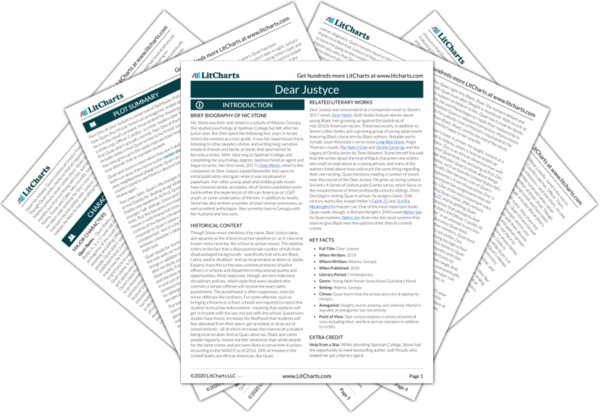AI ToolsNew
Tools to make learning and teaching easier
|
Previous
Snapshot: Two Boys and a Girl in a Car (Present Day)
|
Dear Justyce: Chapter 8: Deal Summary & Analysis |
Next
May 18
|


Upgrade to unlock the analysis and theme tracking for all of Dear JustyceDear Justyce!
Get LitCharts A+